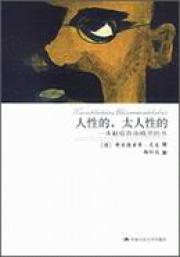1) demands of human nature


人性需要
4) human needs


人的需要
1.
The traditional philosophy used to study the human needs on the viewpoint of the dialectical relationship between the subjectivity and the objectivity,and it provided the necessary basis for us to further explore the state and transforming of human needs.
传统哲学从主观性与客观性对立统一的视角研究人的需要,为我们进一步探讨人的需要态势及转化的主观视角提供了必要的研究基础。
2.
The philosophical implication of examining human oriented concept is seen in the idea that the meaning of human existence is creating value,which has the human needs as the motivating reason,while the free and all-round development is the ultimate value goal of human being.
从价值论视域审视“以人为本”,其哲学意蕴在于:创造价值是人存在的意义,人的需要是人创造价值的动因,实现人的自由而全面发展是人的终极价值目标。
3.
We should pay attention to the relationship between human needs and human all-round development in order to make people develop in an all-round way.
促进人的全面发展,必须关注人的需要和人的全面发展的关系。
5) Human need


人的需要
1.
All the rules and mechanisms which affect the development of human need from different.


人的需要的发展具有上升性规律,每一种需要的实现都有它的内部机制和外部机制。
2.
Marxs understanding of human need and the way of its satisfaction is the foundation of understanding man of realistic world and various social phenomena.
马克思从有生命的个人的存在以及受肉体组织制约的他们与自然界的关系出发,即从人的需要以及求得满足的方式———生产方式出发来理解人的生命活动的性质,成为合理理解现实的人和各种社会现象的基础。
补充资料:《人性的,太人性的:一本献给自由精灵的书》

《人性的,太人性的:一本献给自由精灵的书》
本书是为纪念伏尔泰逝世100周年而写,同时也出自作者对早年崇拜的音乐家瓦格纳的失望情绪。全书用格言体写成,分两卷。第一卷共九章,从各方面探讨了世界与人生的基本问题。第二卷的两个部分《见解与箴言杂录》和《漫游者和他的影子》,继续作者在第一卷中开始的对西方形而上学传统及其影响下的西方文化的全面批判。
作者一方面肯定人性中值得肯定的方面,希望挖掘人的潜力,使人类变得更优秀;另一方面又对人性的弱点和缺点,尤其对西方文化传统下形成的这种弱点和缺点,进行了尖刻的讽刺和挖苦。 作者寄希望于"自由精灵",也就是能超越传统思维方式、传统道德观念而自由思想的人。
本书作者弗里德里希•尼采(nietzsche, friedrich, 1844-1900)是19世纪德国哲学家,唯意志论和生命哲学主要代表之一,被认为是世界最伟大的思想家之一。早年在波恩大学和莱比锡大学学习,获博士学位。不到25岁就被聘为瑞士巴塞尔大学的古典语文学副教授,并在一年以后成为正教授。一生著述颇丰,如《悲剧的诞生》、《查拉图斯特拉如是说》、《善恶的彼岸》、《强力意志》等,对20世纪的思想界产生重大影响。1889年初,在意大利的都灵街头摔倒,就此精神错乱,于11年后在德国的魏玛去世。
说明:补充资料仅用于学习参考,请勿用于其它任何用途。